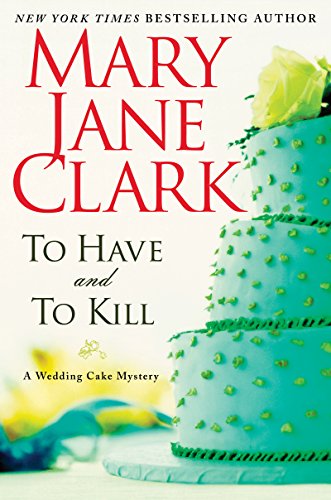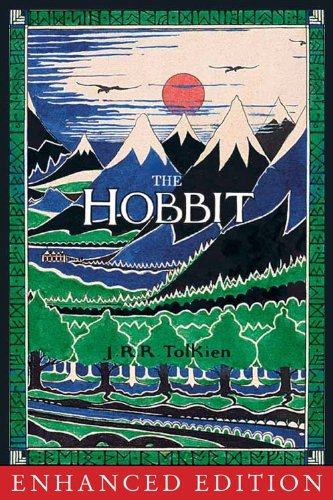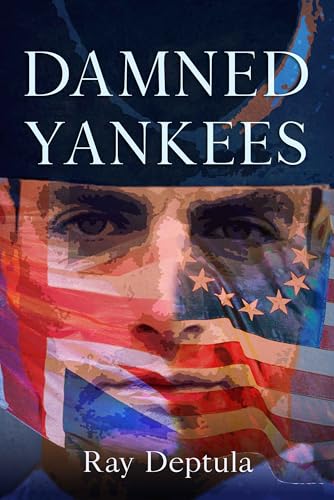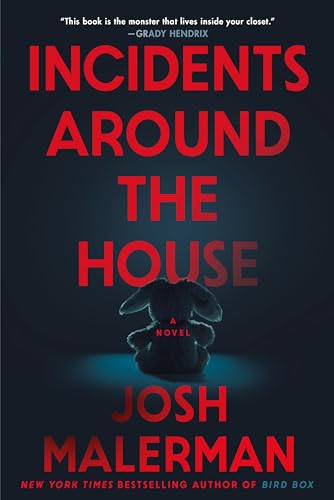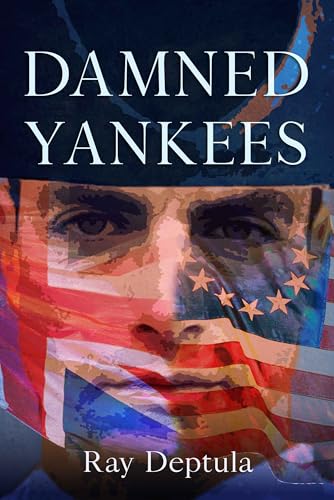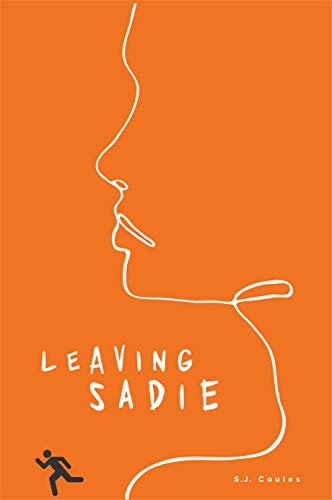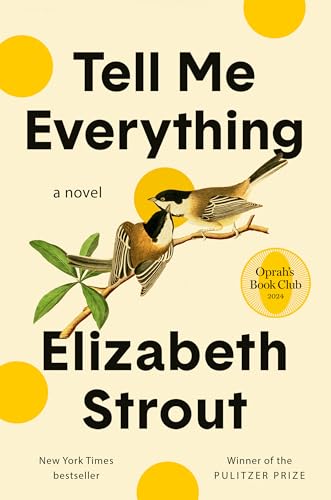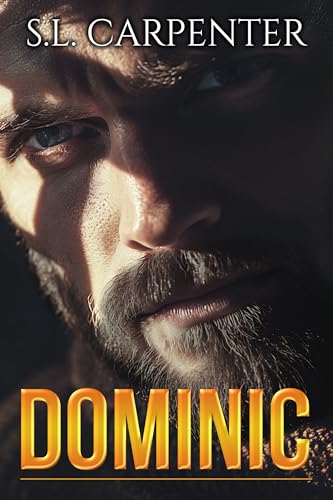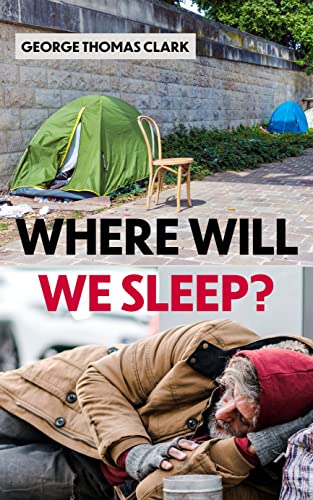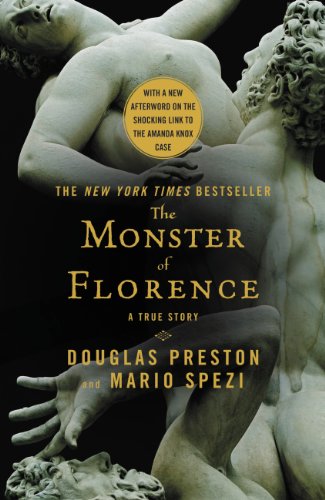A page-turning mystery debut by a bestselling author of technothrillers, with the quirky characters, surprising storyline, compelling dialogue and likeable private eye of the best detective fiction…
“…great fully-realised characters here, and never a dull moment…plenty of twists and turns, as well as a real shocker of an ending…”
Don’t miss LOOSE ENDS while it’s 67% off the regular price!
Loose Ends: A California Corwin P. I. Mystery (California Corwin P. I. Mystery Series Book 1)
by D. D. Vandyke
When a young girl is kidnapped, street-smart but damaged ex-cop California “Cal” Corwin is engaged to find and rescue her before murder raises the stakes. As a straightforward case takes unexpected twists, Cal must quell a growing fear that an anguished mother may never see her child again. With a shadowy crime lord lurking behind every unexpected clue, Cal struggles to tie up loose ends before evil claims its next victim.
LOOSE ENDS is Book One in a new P. I. mystery series from D. D. VanDyke, a pen name of veteran bestselling technothriller author David VanDyke. Set against the rich backdrop of the San Francisco Bay Area, Cal Corwin novels brim with intrigue and fully fleshed characters from cops and criminals to hit men, oddball family and unexpected allies.
5-star praise for Loose Ends:
“…a real page turner…an excellent mystery…”
“…solid mystery…dynamic…”
an excerpt from
Loose Ends
by D.D. VanDyke
Chapter 1
July 2005: San Francisco
I’m scribbling these case files down in hopes they’ll be useful for another woman in my position, another former cop who’s had to kiss the love of her life goodbye and settle for another.
I’m not talking about some guy. I’m talking about the Force, the Thin Blue Line, the fraternity of police I’ve been barred from.
Being on the outside looking in does have its compensations, because now I’m my own boss. I have an agency, California Investigations, named for yours truly, California G. Corwin. My leftover hippie mother stuck the moniker on me, though it’s really not so bad because I go by Cal. I’ve always been a tomboy anyway.
With a clear docket and hope for a new case this Monday, I reached down to flip the drop box open, the one inside my Mission District office off of Valencia. The sounds and smells of San Francisco streets faded behind me as the door swung shut and latched automatically, a feature that said a lot about the neighborhood.
Glancing at the Golden Gate Bridge themed clock on my wall, I saw the big and little hands were just about lining up on noon. I decided I’d let myself off the hook this time for coming in late as I’d done all right at the poker table last night, picking up a couple C-notes. I’d rolled into bed some six or seven hours ago as dawn struggled to break over the Coast Range before giving up in the windy face of cold Pacific Coast rain. When I don’t have a case I admit I tend to fall into bad habits. No problem. Short nights don’t bother me much. I’d learned to deal with them from eight years on the job.
Typical Monday morning mail filled my hands. Bills, junk, bills, junk. A coupon pack that might be worth looking through. As I sorted, a loose business card fluttered to the floor. Must not have been mailed. Hand-dropped into the slot, then.
Bending over, I used the nails on my left thumb and forefinger to lift it off the cool tiles, holding it on fingertips while I walked over to my desk. You just never know where stuff has been.
On the front the card read Miranda Sorkin, Pharm.D with the phone number printed beneath it hastily scribbled out, completely obscured with what looked like fountain pen ink, very crisp and clear. I turned it over.
Cole said you can help – PLEASE CALL RIGHT AWAY and a different, Marin County number scrawled across the back of the stiff cream stock in a hand that was probably neat on most days, but not this time. Today it seemed shaky, anxious, like a woman in trouble might write. I was no expert, but I boasted a passing familiarity with all the forensic disciplines, including the rather suspect art of handwriting analysis.
Also, I got these vibes sometimes, ever since the bomb blast. A homegrown terrorist’s handiwork had left me with nerve damage in my right hand, put some scars on the right side of my face and rang my bell but good. Ever since, I got the occasional flash of weird insight. My mother said the spirits had given me something supernatural in return for their pound of flesh, but I didn’t believe it. If anything, my brain had been rewired and not necessarily for the better.
Today, that vibe strummed a couple of nerves and piqued their interest, so I set the rectangle of pasteboard down in the center of my desk calendar and smiled.
It was nice to get a line on a new case on a Monday, especially from Cole Sage. The prizewinning investigative journalist from the Chronicle had sent me more than one lucrative commission and I appreciated it, even if I couldn’t get him to take a serious look at me.
Sigh. Men.
Taking off my classic-cut gray blazer, I hiked the Glock automatic holstered at my left hip so it didn’t catch on the arm of the old captain’s chair behind my oaken desk. I tossed the jacket on the sofa across the room and reached for the phone in front of me.
When I was in my office, I used my landline as much as possible. It had certain advantages, one of which was the custom-made device it sat on that recorded everything – incoming, outgoing, voice, numbers dialed, messages, the works.
My tech guy Mickey who built the thing says by 2010 people will start to ditch their landlines in favor of cell phones, but that’s only five years away and I didn’t believe it anyway. He still thinks flying cars are just around the corner. I chalk it up to the same wishful fantasies that promise honest politicians and cheap gas, or even a black president. With Bush still in the White House and the economy in good shape that was a pipe dream.
Putting on my best professional manner, I dialed the number on the card. “Good morning, Ms. Sorkin. This is Cal Corwin of California Investigations,” I said as soon as I heard a woman’s voice on the other end. “You said Cole Sage referred me? How may I help you?”
Silence. Then, “I thought Cole said you were…”
“A man? It’s all right. I get that all the time.” I’m sure she’d misunderstood Cole, a common mistake where my name was concerned. People hear and see what they expect, forming false memories that have them swearing to things that never happened.
I had a dozen different responses to her reaction ranging from polite to withering. With potential clients, I played nice. I said, “Is that an issue? I have men among my employees, fit for any necessary role.” Not strictly true – the employee part, that was. More like a mixed cast of regular freelancers.
“Yes, uh…I have a serious problem, and I need your help.” The woman sounded mid-young, thirties perhaps, like me.
“I’m in my office. Come on by.”
“Office? You have an office?”
What did she think, private investigators worked from home? I guess some probably did, but not the better sort. Without a hint of longsuffering, I said, “Yes, I do. Would you like an appointment?”
“Ms. Corwin –”
“California. Just call me Cal. Everyone does.”
“All right, uh…Cal. Call me Mira. I thought this was going to be discreet. I can’t leave my home.”
Thought it was going to be discreet? What is that supposed to mean? And it sounded like she didn’t believe Cal was my real name. What did Cole tell this “Mira” about me? I brushed my sable bob back behind my left ear, a nervous habit that diverted attention from the scars on the right, and asked, “Can you explain what this is about?”
“Not over the phone. This is a prepaid cell but I want to talk face to face. I want to see what kind of person you are.”
I shrugged mentally. Clients were quirky sometimes, but as long as they paid… “All right. If I have to come to you, I’ll be on the clock. Is that a problem?”
“Not at all. I have money.”
A client with money was always a welcome sign to an independent businesswoman like me. “Where are you?”
Mira gave a Mill Valley address, and then said, “I’m not entirely sure they aren’t watching the house. I’ll leave the back gate open and you can come in there if you don’t mind.”
What “they,” I wondered, but decided to ask when I got there. I paused a moment as I wrote, long enough for Mira to ask, “Did you hear?”
“Yes. I’ll do my best to be discreet. See you within an hour.” I put the phone down and put my feet up on the desk to let myself mull things over for a few minutes. I’d often been accused of doing rather than thinking, so forcing myself to employ my “little gray cells” was a good exercise in discipline.
A house in Marin County’s Mill Valley meant upper middle class, except for a few older folks that bought long ago and didn’t sell out to the yuppies. North across the Golden Gate Bridge from the City, Marin was upscale for even its downscale residents, rivalled in the price of housing only by San Francisco proper. Mira’s accent had been pure West Coast, though without the stereotypical Valley-hippie-airhead tones the rest of the country associated with California.
Someone was watching, Mira seemed to think, perhaps tapping her phone or the house itself, and she worried enough to try a bit of cloak and dagger. I attempted to tease out more observations, Sherlock Holmes style, but the only thing on my list was the fact that the client claimed not to be able to leave her home, yet the business card had been hand delivered.
I was throwing on my blazer when I heard the groan. Instinctively my left hand dropped to the butt of my weapon, right reaching for the phone again. That was another reason I liked the hard line – 911 had a much better response time and the dispatch center would see my name and address on their screens.
“Mickey?” I called, easing over toward the open door at the top of the stairs leading to the floor below.
A strained voice drifted up. “Yeah, Boss. Sorry.”
I took my hand off the weapon and descended the steps quickly. On the lower level – technically not a basement as it walked out the back into a common courtyard-cum-private-parking-lot – I flipped on the light.
“Ow, ow – please, Cal.”
I picked my way across the floor cluttered with computer gear and rotated the blinds open before turning the ceiling light back off from the nearest switch. The overcast of the day provided soft but sufficient illumination to reveal the corpulent body of Mickey Tucker, my…well, it was hard to say just what he was. Lost soul, hacker extraordinaire, sloppy puppy, champion online gamer, research assistant. Mickey was all of those things, and often put his considerable talents to work for the relatively cheap price of computer gear, crash space and food money.
“Mickey, how many times have I asked you to just close the door at the top of the stairs and move the little slider to ‘The Wizard is IN.’ Someday I’ll end up shooting your sorry ass.”
“Some days I wish you would.” Mickey sat up on the old overstuffed sofa that served him as crash space and rubbed his eyes with the back of his pudgy hands. He reached for a half-empty thousand-pill bottle of generic aspirin sitting on a subwoofer and palmed a handful into his mouth, following it up with a swig from one of the dozen half-filled plastic bottles of flat diet soda scattered around the place.
“All-nighter?”
“A double. Been here since Saturday, trying to beat the boss on Level 666. No cheats.”
“No cheats, eh? So did you?”
Mickey shook his head. “Nope. Think I passed out. Woke up on the floor. Crawled to the couch…”
I sniffed. “At least you still have something to look forward to. That and a shower.”
“Yeah. Sorry. I have some deodorant in the bathroom. Got any food?” he asked hopefully.
“No, but I have a case, which means you have a job and you can buy yourself breakfast. Stay near your gear, all right? I need you to actually work today.”
Mickey licked his lips and put on puppy eyes above his scraggly beard. “Umm…”
Understanding perfectly, I took out a money clip from my front jeans pocket and peeled off a twenty. “That’ll get you something from Ritual Coffee. Here.” I photocopied Mira’s business card, back and front, on the all-in-one printer, and then handed it to Mickey, taking the copy for myself. “See if you can lift the original number from under that scribble. After that, find out all you can about one Miranda Sorkin, pharmacist.”
“Above or below the line?”
I chewed my inner lip. “Above, for now. I’ll let you know when to start tunneling.” I could afford to hire Mickey as a researcher, but didn’t want to promise him a lot more for hacking until I found out what this job would pay. While I wasn’t behind on my bills right now, I detested a negative cash flow like Mickey hated losing his T1 line.
“You got a working sniffer?” I went on.
“Sure…around here somewhere.” Mickey rooted among some equipment and came up with a box the size of an old transistor radio.
I took it, checked the battery, and thanked him with a nod while sliding it into my blazer pocket.
Chapter 2
Exiting the basement walkout, I approached Molly, my royal blue Subaru Impreza, parked in the courtyard. Her parking space was part of the office building deed, and of my two cars, Molly was the more practical and could stand the weather best. My house a couple of blocks away – Mother’s really, in her name though I’d paid for it – had only a one-car garage, like most of the local restored Victorians. I wasn’t leaving Madge, my lime-green custom 1968 Mustang California Special ragtop, out in the rain.
Besides, I liked the walk.
I gave the Subaru a once-over by habit before sliding behind the steering wheel with a contented sigh. Something about the driver’s seat of a rally car felt like home. No, not home. It felt like where I belonged.
Molly’s supercharged engine screamed and her grippy rain tires would have squealed as I pulled out if the pavement hadn’t been wet. While I had foregone most of the external markers of a hot rally ride when my girl had been customized, on the inside the car was a regionals-class racer.
I indulged my hobby whenever I had both time and money to spare, which meant not often enough. One nice thing about a case was I got to drive on the client’s dime.
Shooting up Valencia to catch 101, I wove exuberantly through light traffic past the Palace of Fine Arts before crossing the old Presidio and onto the Golden Gate Bridge. The early afternoon breeze blew gusty and the fog was clearing fitfully, the day promising mist and sprinkling at sea level beneath brooding overcast until inevitable swirls of night rolled back in. I cracked the window to let in the fresh offshore air, smelling the tang of kelp and fish as Green Day’s latest hit Holiday blasted from the stereo.
Five miles later I reached Mill Valley, a Marin suburb now green with recent rains. My GPS brought me to a house at the edge of the flat older section of town where the road just started to crawl upward into the low hills above. The dwellings I saw there were a bit smaller and more aged than those perched above, meaning they could be had for under a million. The higher the view, the higher the price. I glanced at a monstrosity at the top that had to cost at least ten mil and shook my head. When the Big One finally came, that puppy would mudslide down like a Stinson Beach surfer on steroids, taking eight or ten other dwellings down with it.
When I got close, I flicked the GPS off to stop the cheery canned voice from complaining and pulled over to take a casual look at the front of Mira’s house. Everything seemed neat and orderly except that a temporary wooden holder had been driven into the front lawn, the kind that held real estate “for sale” signs, though its crossbeam was empty.
I pulled out again and cruised the neighborhood looking for obvious signs of surveillance – delivery vans or small RVs parked on the street, large dark American sedans with suits in them, or houses with blinds lowered but rotated open. Nothing jumped out at me, so I parked around the corner at the end of the block.
Fortunately an unusual vacant lot bearing signs of local kids and their BMX habits allowed me to access the back gate of the Sorkin home without too much trouble via a footpath that wended its way behind the houses. This arrangement was odd but not unknown, especially in older developments built under the liberal or nonexistent zoning laws of the past.
It looked like these places had been individually constructed in the 1950s to house the Greatest Generation as they rebuilt postwar America, and had been renovated many times since, creating a patchwork of styles. Pseudo-Spanish architecture abounded – Sorkin’s was one of those – but I also spotted Cape Cod, Colonial and several variants on mid-century modernism. In short, typical coastal California.
I pushed on the back gate of the weathered wooden six-foot privacy fence and slipped inside. The yard I saw teemed lush and had begun sliding into overgrown as if neglected for months. No swimming pool – the coast range towns were too cold from the Pacific breezes to make that feature de rigueur. Mark Twain had famously said, “The coldest winter I ever spent was a summer in San Francisco,” which definitely applied to Marin County as well, even in July.
Movement behind the kitchen window made me pick my way up the garden path toward the back door, where I met a brown-haired Caucasian woman not too different in build from myself. With unwashed curls and housecoat, bloodshot eyes and shaky hands, she looked like hell.
Without speaking, she took my arm and pulled me toward a small, separate building.
Opening a door, the woman motioned me into what turned out to be the house’s small freestanding garage. It smelled of automobile, wood and dust. Shutting the portal behind, the woman flipped on the bare-bulb light above a nondescript Toyota sedan, and then let out a sigh of relief. “Thank you for coming, Ms. Corwin. I’m Mira Sorkin.” She clutched my right hand as if drowning, and then let go suddenly, confused at what she felt there.
It hardly bothered me anymore, people’s reactions. Best to get it over with. I brushed the hair back on my right side, revealing the scars that the reconstructive surgery hadn’t been able to completely banish. I’d had my bob cut to fall over them and with a bit of makeup I could conceal where they crept into the open along my jawline.
Mira’s surprise flattened out with the smoothing of her face. I ignored the other woman’s emotions by dint of long practice. “Bomb,” I said curtly, holding up my right hand and flexing it. “I was lucky. This hand’s a bit weak, but the blast didn’t even damage my eye.”
“Oh, I’m sorry.” Mira froze, as if not sure what to be sorry about, or how to act. “I suppose in your business…”
My business? I wondered if Mira thought all P.I.s encountered bombs, or should be damaged goods, like in a noir novel where the protagonist is always on the edge of falling apart, usually from alcoholism. Maybe Cole had told her I had been a cop, or that the P.I. trade was shady. Maybe that’s what she meant.
“It’s fine, really,” I repeated. “Can’t even tell with my hair in place. Got some ID?”
“What?”
“ID. I like to know for sure who I’m talking to.”
“Oh…not on me. Inside.”
I grunted in irritation. “Okay, later. Why are we in the garage?”
“I can’t be sure the house isn’t bugged.”
“Then why don’t we go somewhere else?”
Mira pulled a cordless handset out of her housecoat pocket. “I have to stay by my home phone.”
It appeared Mira would say more, but I held my hand out for the cordless and examined it briefly before pulling out a multi-tool from my belt. “Let’s make sure this isn’t bugged either, otherwise we’re in here for nothing.”
After opening it up, I shook my head, screwed it back together and handed it to Mira. “Nope. Looks clear. Now what’s this all about?”
Mira shuddered and breathed deeply in, and then out. Her exhalation sent the sharp sour smell of alcohol wafting under my nose. “My daughter was kidnapped two days ago.”
Hairs rose on the back of my neck as my cop sense woke up with a surge. I had expected some kind of marital dispute, even a custody battle, not capital crimes for breakfast. And Mira had been so calm on the phone.
If it was my daughter I’d have been climbing the walls and looking for someone to shoot.
I wiped the leg of my jeans off where I’d brushed the Toyota in the close confines of the small garage. “Mira, let’s go inside. I’ll check for bugs in your house,” I said, pulling out the sniffer and holding it up, “and maybe I could trouble you for a bagel or something. I came right over after our call and I haven’t eaten. I think better with some calories in me.”
“Of course, of course.” Mira retraced her steps, leading us through the back yard.
“Remember, don’t say anything that matters until I give you the all-clear.”
Once we’d made our way into the house, Mira poured mugs of coffee and dropped two bagels into the toaster, puttering around as if lost. The interior of the house showed off the latest look. The kitchen had high-end counters, cabinets and appliances, and the brewing coffee dripped from a machine that probably cost more than a set of rally tires. It smelled heavenly.
So Mira was comfortably well off. I tried to figure how much I could ask for and not feel guilty, reminding myself that “a workman is worthy of his wages.” Even after two years off the force it was hard to charge people money to help them, but I had a business to run and bills to pay.
While Mira puttered, I ran the sniffer over the kitchen and nook, and then the living room, working outward.
Nothing.
A less thorough check of the three-bedroom upstairs made me reasonably sure that no microphones lurked. Someone might be wiretapping the phone line on the way out or there might be one of any number of devices attached to the computer in the corner, but at least it seemed we didn’t have to worry about talking.
I did see pictures of Mira and a girl in various settings taken within the last ten years. I recognized a couple of local landmarks – the carousel at Fisherman’s Wharf, the observation deck of Coit Tower, the Alcatraz dock. As I looked at the photos, nowhere did I see a man or anybody else that might be family.
The girl’s father must be out of the picture. Gone, rather than dead. People didn’t excise the dear departed from their memorabilia, only those they didn’t like anymore.
Or I suppose he could have been a sperm donor. Unusual, but not unknown.
Just to be sure we were not overheard, I shut the drapes and turned on the stereo in the living room, hoping the two tactics would limit the ability of anyone to paint a windowpane with a laser pickup. Devices like that read the sound waves coming off the glass, but worked best with a quiet background.
Finally, I sat down in the kitchen nook across from Mira. I slapped blueberry cream cheese on a bagel. “Okay, I think we’re clear. First,” I lifted a finger, “business. It’s a hundred an hour plus expenses, max a thousand a day, and I need ten thousand up front as a retainer.” I’d charged more, occasionally a lot less, but to a pharmacist who probably took down two or three hundred large a year, ten should be doable.
Nor was I wrong. Mira nodded without flinching. “I’ll write you a check. Just help me, please.”
“Good. Now, tell me about this kidnapping. Start with why you haven’t called the cops.”
Mira gulped from her mug, her eyes bleak. “The people that took her said not to talk to police, but they didn’t say anything specifically about a…someone like you.”
My expression might have turned a bit strained, but I tried to ignore her words. The client was the client. “I used to be a cop, if that makes you feel better.”
“Really? How did you…never mind.”
Ignoring her strange attitude, I asked, “So why did you wait two days to get in touch with me?” Or maybe she didn’t wait. The card could have been put into my drop box any time after Friday night.
“Cole Sage was the only person I knew that wasn’t police, that might have…connections to…people like you…so I called him first and he referred me. Don’t worry. I can keep my mouth shut. But I gave them what they wanted and thought I would get Talia back right away but it didn’t happen, and now it’s been more than an extra day and I’m about to lose my mind.”
So Mira could keep her mouth shut, she claimed. That was another odd thing to say. I fished the photocopy of the business card from a pocket, not letting her see the front as I unfolded it, glancing at it before I folded it over again. Something seemed out of whack, but damned if I knew what. Things were tugging at my subconscious, but weren’t ready to surface. “Cole said to get in touch with me…how?”
“I put the card where he told me to, and he said you’d get it.”
So that explained how the card got to my office. Cole Sage must have picked it up and dropped off. He did live in the City, a couple of miles from my office and home in the Mission District. It would be just like the journalist to do it that way. I’d probably come on too strong last time and scared him off, dammit. Or, to be fair, he knew of my late-night proclivities and when I didn’t answer the office buzzer he simply dropped it off and left.
On the other hand, there’d been no message on my answering machine. Cole was nothing if not meticulous. He confirmed everything. I filed that anomaly away.
While I was thinking, Mira finished her coffee, and then went back to the machine for another fill-up. Her stealthy motions as she did it, the details hidden by her turned back, and the clop sound of plastic on the counter triggered recognition in my brain.
“You might want to go easy on that stuff,” I said.
Slowly Mira turned, an orange prescription pill bottle in her hand. “I just…”
“You don’t have to make excuses. I’d be popping Valium too if I was in your position.” I wouldn’t, but I was trying to be sympathetic. Fortunately I never had any trouble with drugs or alcohol.
Adrenaline…that was another story.
Mira sighed. “It’s prescribed. I have anxiety these last couple of years, since my divorce. Panic attacks sometimes.”
“I’m not judging you.”
“I’m a pharmacist, you know,” she said as if that explained something.
“Yes. It was on your card.”
“I don’t have enough money for anyone to make Talia a ransom target but I’m the assistant warehouse manager for the biggest distributor in the northern Bay Area. My building has hundreds of millions of dollars worth of high-grade pharmaceuticals in it, though not many people know it.”
“And they wanted you to, what? Help them rob the place?”
“Yes. They forced me to give them my keycard and my codes. They have my thumbprint on a silicone thingy, which I assume they were going to use on the scanner. They also have all my personal info – social security number, former addresses, family names…and they made me tell them what my security questions and responses were.”
“There’s a monitored alarm?”
Mira nodded, seeming to relax as the Valium hit her, so fast that part of the effect must be psychosomatic. So she wasn’t kidding about using them for a while. “Yes. To open the warehouse you have to call the monitoring center, identify yourself, give them a password, respond correctly to a security question, scan a keycard, put in a PIN code and put your thumb on a scanner. Oh, and all of that is in front of a high-resolution camera with them looking on. Otherwise they send a security team and call the cops.”
I sat back, taking a bite of bagel and sipping my coffee. It gave me time to think. “That’s a lot of security. They would have to have someone to double for you on camera. So right off the bat we know there’s a Caucasian woman of about your age involved, maybe with dark hair. Of course, she could wear a wig. Did you see any of them?”
“No. Just a male voice, middle aged I’d say, on my home phone. Blocked number.”
I took another bite and a sip, thinking while Mira fidgeted idly with her cup. “But you say they haven’t pulled the heist?”
“I…I don’t think so. I had the grocery nearby bring me a prepaid cell phone along with a few other things – they do deliveries, costs an arm and a leg, but what can you do – and used it to call the security center and ask them for the exact time I’d last been at the warehouse. I told them I needed it for my records, and they gave me the same time I closed up Friday night. So the kidnappers haven’t used my info yet. As far as I know.”
“Maybe you better start at the beginning and tell me step by step what happened.”
“But my daughter! She’s in danger!”
I put my cup and bagel down and stared at Mira, not allowing myself to throw her own two-day delay back in her face. Not with a paying client. “Mira, I have to get all the details straight in my mind because any clue might be the one that helps me find Talia. Believe me, this will save time later. If you call the cops now it’ll take them twice as long to get started on this and there will be a lot of hoopla. Odds are very good that your daughter’s fine. Because you have had no personal contact with them, there’s no reason for property criminals to kill, especially not a pretty little middle-class white girl. The public would eat it up and there would be a manhunt coast to coast. The thieves don’t want that kind of heat on them.”
Mira’s face turned shocked and angry. “What does being a pretty white girl have to do with it?”
I sighed, rubbing my head, trying to put myself in her position. “It’s sad, but I’m just stating the bald, non-PC truth. Dozens of poor kids – mostly black and Hispanic – go missing every day in America, but only a handful of well-off white girls. Who gets on TV?” I deliberately did not go into my personal experiences with missing children. When things went off the rails, they usually did so horribly, but I sure wasn’t going to tell her that.
Mira looked as if she was on the verge of tears. “That’s terrible.”
“I know, but perversely, it’s good news. They’re less likely to hurt her. Really. She’ll be okay. I’ll find her.”
“ I never thought anything like this would ever happen to us.”
“No one ever does. Take a deep breath and tell me what happened from the beginning. Give me details if you can.”
Mira took that deep breath and spoke. “Friday night after work I drove home and parked in my garage. Talia should have been here waiting for me – she’s a latchkey kid. The school bus drops her off on the corner. When I got inside I found a note in the middle of the table. There was also a big envelope with a form to fill out with all the information they wanted, just like an application, and a little plastic box with silicone in it for my thumbprint.”
“What did it say? I don’t suppose you copied it?”
“No, I didn’t think to… It just said to fill out the form and put everything including the note into the envelope, seal it and put it in my mailbox. It said they were watching, and not to call the cops or anyone, or else, and that they would return Talia by Saturday evening.”
“Saturday evening. So they probably intended the heist for the Friday night or Saturday morning early. They’d tell the security people ‘you’ forgot to do something so you had to come in, but it would be the imposter. What happened next?”
“I did exactly what they said. I filled in every bit of information and put my thumbprint in the silicone box.” Mira’s tone was condescending, perhaps even self-righteous, as if doing what the kidnappers had said should have made everything work out.
I was beginning to vaguely dislike Mira. I wasn’t sure why. She wasn’t overly privileged or rude and she certainly couldn’t be blamed too much for popping pills in a situation like this, two days full of helplessness. Maybe it was just the feeling the woman looked down on me despite the fact it would be my ass on the line. Or perhaps it was a strong hunch she wasn’t being fully truthful with me despite the risk to her daughter.
Mira said, “Anyway, I put the envelope in my mailbox – it’s out front at the curb – and went into my bedroom and stayed there like the note said.”
“Your bedroom faces the back, right?”
“Right.”
“So when did the envelope get picked up?”
“Sometime in the middle of the night, I guess. I fell asleep finally about two, and then I woke up around seven thinking it had all been a dream until I remembered again that Talia was gone. No one had called. I went out to check and the envelope was gone from the mailbox. I came back inside, got something to eat, checked my email, turned on the TV and waited. They called about an hour later.”
“So that was Saturday morning…they called around eight? But you checked the mailbox around seven?”
“Yes. Does that matter?”
“It may.” It indicated, but didn’t prove, that the perps were not actually watching or listening in at the Sorkin house. I would have thought they’d have called as soon as they saw or heard Mira check the mailbox, not an hour later…unless they were very clever and that’s what they wanted anyone to think.
“Go on. Tell me about the phone call. You didn’t happen to record it, did you?” Lots of doctors had recorders on their phones for malpractice protection.
“No. I never thought I’d need anything like that. I mean, I don’t deal directly with patients. I was hired for my degree, not my clinicals.”
So she had no interest in helping people per se with her medical degree; she just wanted to be a well-paid glorified warehouse clerk. A little girl was in the hands of kidnappers, I reminded myself. Not to mention the ten grand and a client that, no matter what her job, didn’t deserve her current karma, especially not as it was tangled up with her daughter’s. At ten, Talia was innocent. I had a child to find and bring home safe.
“The phone call,” I reminded Mira.
“Yeah. Well, his voice was ordinary. Middle aged, as I said, and probably white. At least, he didn’t seem to have any…”
“Ethnic markers?” I prompted.
“Yes. No accent, either.”
“So you mean he sounded like he was from around here?” When people said “no accent,” what they usually meant was that the person spoke like they did.
“Yes, that’s what I mean. American English, not black or Hispanic or Asian…no offense.”
I chuckled. “One grandmother was Japanese, one Mexican, but my parents and I were all born here, so…none taken.” It showed just how PC everything was getting that Mira felt she had to apologize for making the simple factual observation that I was not quite white. “Go on.”
“He reminded me they were watching and listening. If I kept quiet and they had no trouble, Talia would be returned Sunday. It wasn’t fair because they said they’d return her Saturday night and now they pushed it back. Then they let me talk to her for a few seconds, I guess just to show that she was all right. She said she was okay. I could tell she was scared, but not absolutely terrified. She always was a brave little thing, like a boy.”
I bit back a reflexive lecture on gender stereotypes, because Mira’s characterization reminded me of myself and things my mom used to say about me. Sticking to the facts, I said, “Was that it? Did they say how Talia would be returned to you?”
“No, but…I mean, this is supposed to be a safe neighborhood. They could drop her off anywhere and she could just walk home, and it’s not like they care about her…oh, God.” A sob welled up from Mira and forced itself from her throat. “Please, you have to get her back.”
I reached across to take Mira’s soft, well-manicured hand in my own callused left, keeping my right back. I’m a leftie and hadn’t lost capability on my strong side. To merely look at my right you couldn’t tell anything was amiss, but people were still funny when they sensed weakness, as if at some level they thought it was contagious.
“That’s what you hired me for – to get her back. Not to catch crooks. That’s the police’s job. I’ll do my very best. So, what happened next?”
“Well, I waited all day and all night, just trying to keep busy. It was agonizing. Then, when Talia didn’t show up by noon Sunday, I started to panic. I got the prepaid phone and called Cole. He said he was out of town on assignment but asked a couple of questions that made me think to call the alarm monitoring, like I said, and found out they hadn’t used my info to get in to the building and steal the drugs yet. Then he told me he knew someone that could help, though I didn’t know who you were then. He just said you were someone discreet and connected. The rest you know.”
No, I thought as I stared at Mira. I didn’t know why Cole would say I was connected. That word usually referred to someone in organized crime. Or maybe Mira was getting the words wrong. Maybe he said I had connections, which was quite a different thing.
I also didn’t know why Mira didn’t just phone me on her burner and try to reach me Sunday. I checked my messages once a day at least. And, I didn’t know how that card got into my drop box. It was one of the parts of this whole deal that made no sense. There might be a couple of other things I didn’t know, but I couldn’t pin them down yet, and if I asked outright, I’d tip her off for sure…
“So here it is Monday afternoon. Are you sure they haven’t stolen the drugs between your call yesterday and right now?”
“Well, I emailed in sick, and then got a reply from my assistant, who would have mentioned anything wrong, I think. Then I called the monitoring center again this morning, just after shift change so it was different guys. I didn’t want them to wonder about me asking the same question again. They gave me the same answer as before so…pretty sure.”
“And you have heard nothing more from the kidnappers?”
“No. Nothing.”
“Okay. You know,” I said, speaking clearly and distinctly to try to help Mira focus, “at some point we will have to bring the police into this, even if it’s just to report the whole thing after we get her back, so you need to be ready. Once I’m gone, I want you to write down everything that happened, every detail, every jot and tittle that you can think of. It will help you later when you have to make a statement, and I may find it useful too. I notice you have a fax machine. When you are done, fax it to my office at this number?”
“Yes, right there.” She pointed.
“Right. Don’t email it, fax it. Harder to intercept, even if they are tapping your home phone, which I don’t believe they are.” I scribbled my numbers down on the corner of the card photocopy and tore it off. “Call me from that burner phone if you need anything or you think of something else.”
Mira picked up the scrap of paper and looked at it, and then nodded.
“Oh, are you moving soon? I saw the real estate sign holder on the lawn.”
“I was thinking about getting something newer but changed my mind,” Mira said, a bit cautiously it seemed to me. “Now I wish I had already. Maybe…” She rubbed her face. “Anyway, a gated community is safer for Talia.”
“Do you have a picture of her you could lend me?”
“Sure.” She retrieved a snapshot from a desk in the other room, and then set it in front of me.
I cleared my throat. “And I’ll need that check.”
“Of course.” Mira pulled a beautiful wallet out of her matching designer handbag and quickly wrote out the amount and the numbers, and then signed it with a ballpoint. She left the TO line blank when she handed it to me.
I stared at the check for a moment. That tug again. My conscience, or my cop sense? Sometimes they were hard to distinguish from each other. Also, Mira’s handwriting seemed to have improved from the scribble on the card. Probably more relaxed with the Valium in her.
I folded the piece of paper in half, slipping it deep into my money clip, which resided in a tight front jeans pocket. “Thank you. I’ll be in touch by dinnertime at the latest. Please don’t do anything before then without calling.” I stood.
“Of course. Thank you so much.” Mira stood and reached for the pill bottle again.
“And Mira…don’t take too many of those, all right?” I held up a hand in apology. “I’m not judging. Just because you need to be clearheaded. For your daughter. For Talia.”
“Yeah. I’ll…I’ll wait until later.”
“Is there anyone who can come stay with you? Someone you can trust?”
Mira shook her head. “No. No one close enough for this.”
I wasn’t huggy with women, but I made myself reach across to take Mira’s hand. “If you want me to look into this, I have to go now. You’ll be all right? You’ll be strong?”
A tear rolled down Mira’s cheek, quickly wiped away. “I think so.”
“Okay, then. I have to go find your daughter.”
“I know. Go on.”
Chapter 3
I let myself out Mira Sorkin’s back gate with relief. Now I felt like going, doing. The bright afternoon sun continued its struggle to burn away the lingering coastal drizzle, reinforcing that feeling of gusty, crackling energy.
I dialed Mickey’s desk phone before I had reached Molly, speaking as I picked my way across the wet unmowed grass and weeds of the vacant lot, avoiding muddy BMX paths. “What you got?”
“Miranda Almone Sorkin, née Herndon, born in 1970 so she’s thirty-five. Married once to Dennis Wilson Sorkin. No criminal record for either of them. Graduated Stanford pre-med at twenty and then UOP Doctor of Pharmacy at twenty-three. Married shortly after graduating in 1993, when she went to work for North Bay Distributors, a drug wholesaler owned by Rankin Pharmaceuticals. One ten-year-old child, Talia, born in 1995. They divorced in 2003, but she kept his name.”
“Tell me about the ex,” I said as I fobbed open my car with a beep and got in. At this point I really didn’t think Mira was being watched. In fact, given that the heist – the presumed heist – had not taken place, Mira supposedly had not heard from the kidnappers and I had found no bugs, I doubted they were watching the house at all.
“Dennis is an MBA, a stockbroker. Liked to live big, from what I can tell. Flew high for a few years but lost a bunch of his clients’ money on some bad trades right before the divorce. Dodged criminal charges, but the trading house dumped him hard. Looks like she was paying his bills for a while. Then they split up and he moved to Seattle where he now works at a small firm. Less than two mil in client assets. That’s not bad, but not big like he used to be. He took home one hundred ten thousand last year.”
“Decent, but not even what Mira makes.” I popped the phone into its hands-free cradle and stuck the headset on. “So he either learned from getting burned and is on the straight and level or he’s got an angle, something not obviously traceable, and is working this pedestrian gig as a cover. Was the parting amicable?”
“Not at all. Looks like a lot of bad blood, motions and countermotions, accusing each other of bad parenting, crazy stuff. Everything but child molestation and adultery. Almost comical, really.”
“No adultery charges? Why did they break up, then?”
“The initial filing listed ‘irreconcilable differences.’”
“When things start to get ugly, people begin to lie. At least, exaggerate. Seems weird that neither accused the other of sleeping around.”
I could almost hear Mickey shrug over the phone. “Sometimes it just all goes wrong. That’s what Mom says when I ask about what happened with Dad.”
“Yeah.”
“I was wondering if maybe Dennis figured out a way to burn Mira. Maybe he sicced this heist crew on to her as payback for getting custody of the daughter?” Mickey said.
“Maybe.” I chewed my lip. “Hard to believe he’d put his daughter at risk, though.”
“Probably didn’t know they’d kidnap her. Things got out of hand.”
“Mickey, you’re smarter than you look.”
“Thanks, I think. Does that mean you want me to keep tunneling?” No surprise, Mickey sounded eager to put his skills to use and make some money doing it.
“Yeah. Dig away on both of them. I got an advance and as long as the check doesn’t bounce you’re good for a few days of work.”
“Sa-weet.”
I revved the Impreza’s engine, spun the wheel and hit forty in the twenty-five zone in two seconds flat, twisting through the narrow car-lined streets. Unlike more modern suburbs, garages and driveways were small in this neighborhood, seldom holding more than one car, and curbside parking was the norm. “I need you to take a look at Sorkin’s landline records for the last week, incoming and outgoing. Flag repeat calls, and try to match all the numbers to names. Then cross-reference them with the ex’s. Also,” I kept my voice casual, “pull up Cole Sage’s records. Any numbers he has, including his office numbers at the Chronicle. See if anything lines up. Print those all out, will you?” If I was going to pay Mickey to hack, I might as well feed my favorite obsession. Okay, maybe second favorite, or third, after racing and poker.
“Okay, Boss. I’ll have all this by tonight. Tomorrow at the latest.”
“That’s my boy.”
“I wish.” Mickey hung up.
“I heard a wistful undertone in Mickey’s words,” my dead father said in my ear. Okay, I knew he wasn’t really there. He wasn’t a ghost, I was pretty sure. He’d never told me anything I didn’t already know or reveal secrets of the Other Side. But ever since the bomb blast, he’d show up and talk to me, usually when I was driving alone.
I couldn’t help but look over at the passenger seat. Sometimes I could see him, sometimes only hear his words. Today he sat there in his corduroy jacket and long 70s haircut, exactly like he appeared in my favorite photo of him, the one on my office wall.
“Poor guy’s had a crush on me since I’d hired him for one of my first private cases,” I replied as if nothing weird was going on, refusing to allow tears to spring to my eyes. I’d found if I tried to make the hallucination go away, whatever part of my mind created it fought back harder. Better to simply roll with it, talk it out and let it fade along with the ache in my heart.
“I wouldn’t worry. It’s a hopeless nerdy fanboy thing, like having the hots for Halle Berry because she plays superheroes and villains.”
“I don’t worry.”
“I hope you don’t flirt with Mickey to keep him working harder for you.”
I shook my head. “That would be cheap. Besides, unrequited hope seems to flow like caffeine through the whole gamer crowd’s veins. I don’t have to encourage him.”
“But you don’t discourage him.”
“I don’t want to crush his ego.”
“If you did, he might get over you and find a girlfriend.”
“I can’t do that. I’m shocked you’d even suggest it.”
“Sometimes you have to kill the hope-monkey,” he said.
The hope-monkey was a metaphor Dad often used. He said people were addicted to hope like a junkie to the needle. I thought about Cole, knowing I might have more in common with Mickey than I’d admit. Maybe it was the scarring that put Cole off. I massaged the damaged area around my right ear with the heel of my hand. That part always still felt like it was asleep. My thoughts turned dark as I answered my own question.
“Your mind is wandering,” my father said.
“It does that.”
“You don’t look that bad. Plenty of men show interest in you.”
“Children don’t run screaming and people don’t flinch away, you mean.” When I see myself in the mirror or a snapshot someone has taken of me I look completely normal, but what woman doesn’t obsess over her flaws?
“Screw Cole,” Dad said. “Get a grip, girl. Plenty of fish in the sea.”
That was proof positive this apparition was no spirit, just a hallucination. Dad never used language even that strong. He’d been a good Catholic and a crusader for social justice, unfailingly polite even when he was being tough.
“Easier said than done, Dad.”
I waited, but he didn’t answer. When I looked over, he was gone, thank God.
Breaking out of the cramped neighborhood with relief, I turned off my higher brain function and floored it onto Miller Avenue, raced through the traffic as if I was at Le Mans, reveling in the physical. My fuzzbuster showed green and lasers didn’t work very well in the drizzling rain, so unless some overzealous uniform got eyeballs on me, I should be fine. Adrenaline sang through my veins like joy, mixed with anger on Mira’s behalf.
Whatever it takes to get Talia back, I’ll do, I vowed.
I proceeded down Bridgeway until it met 101 again. The state highway was still lightly traveled and should remain so in the misty daytime until rush hour and ocean fog made their inevitable rendezvous on the Golden Gate Bridge before dusk.
I was happy to live and work in the same neighborhood where I grew up, the Mission District, now a bit more gentrified than it used to be but still full of character, and not have to commute in to work as I used to. Beat cops, even detectives, didn’t make enough to live alone in the City, but now I owned my office and cars free and clear.
I’d also bought Mom and myself a house, and all it had cost was a damaged hand and face, one eardrum, some nerves and skin – and my career.
I’d happily trade the money back if I could. Because I couldn’t, I worked hard, played harder, and lived life the hardest I could. “Die young, stay pretty, live fast ’cause it won’t last,” Blondie sang on the radio when I was a teenager in the 80s. Meat Loaf had an answer for her: “Two out of three ain’t bad.”
After crossing the Golden Gate I exited onto Marina Boulevard, just by coincidence less than a mile from Cole’s place, and then pulled over. I opened up his speed-dial entry and pushed the button. When I called it went through to voice mail, so I left a message in hopes of getting a callback to clarify things. Maybe he could give me some more background on Mira. She’d said he was out of town, but it was Monday. Maybe he had returned from his trip by now. I needed a lead and I hated to return to the office and hang around waiting for Mickey to come up with something.
After trying Cole’s office and unsuccessfully trying to get something more out of the receptionist, I decided to plug the address of the pharmaceutical warehouse into the GPS.
The voice of the machine led me back across the Bridge and up to a discreet commercial district in San Rafael straight to a large building with a high, heavy fence that I would have taken for a corporate headquarters rather than a warehouse if not for its utter lack of windows. A tiny plate read, “North Bay Distributors.” When I pulled up to the talk-box at the barrier I had my story ready.
“Hi, Cal Corwin of Corwin Security,” I said. I actually had several business licenses, including security consultant and bail bondsman. Telling someone up front you were an investigator wasn’t always the best move. “I need to talk with your security people.”
“Umm…I can give you the number up at Corporate,” the young male voice said from the speaker.
The camera feed should be showing my face, my good side thank God, so I ran my hair behind my ear and smiled winningly. “How about the number to the monitoring center? That can’t be against the rules, right?”
“Umm…okay. But I can’t open the gate for you.”
“That’s fine. Just the number is good.”
I wrote it down and then backed up, waving an apology at the driver behind me as I did a five-point turn in the cramped space of the lane between the curbs. I called Mickey as I drove and interrupted him long enough to get me a reverse lookup on the number. I plugged that into my GPS.
Back when I was on the force we didn’t have these things. The department wasn’t going to spring for expensive new gadgets, but for me it was an essential time saver.
This time the machine led me farther northward to Novato and an office building with an open parking lot and a lot of traffic in and out. I could have just phoned, but I find a friendly face gets a lot more results than just a voice on the line when it comes to bending the rules.
At least forty clients were listed on the directory, with Clawson Monitoring on the second floor. I breezed through the unwatched lobby. Somehow I thought it ironic that the drug warehouse was well defended while the office of the security center was not. Seemed like a point of weakness.
At least the steel company door was locked, with a keypad and card reader to the side. Its small identifying sign seemed understated. I knocked, waited, and then knocked again harder before getting an answer.
The man who answered the door narrowed his middle-aged eyes in suspicion. “Can I help you?” He didn’t sound like he wanted to help me at all.
“Cal Corwin of Corwin Security.” I waved my impressive but largely meaningless badge at him. “Can I get a few minutes of your time?”
Relaxing fractionally after looking each way down the hall, apparently ensuring I was alone, he said, “Sure. Come on in.”
I followed him into a bare reception lounge with a couple of naked workstations in it – phones, computers, not much else. No one sat at them. In one corner squatted an old refrigerator next to a kitchenette – countertops, cabinets, a two-burner stove, microwave and sink. A restroom door and another unmarked one completed the points of interest. I presumed the second entry led to the real monitoring center.
The man waved me to a seat and then sat down nearby. “What’s this about?” His eyes set deep in a grizzled hatchet face stayed very still, like a hunter, as did his whipcord-lean body.
“You’ve been on the job?” I asked, recognizing the signs.
“Like you. Bill Clawson, Lieutenant, Chicago PD, retired.” He still didn’t hold out his corded, veined hand.
“Cal Corwin, as I said. Eight years SFPD.”
His eyes flicked to my hip. “Still carry, I see.”
“Good catch. Yes, I do.”
“I don’t.” Distance surfaced in his haunted blue eyes.
“Should I ask why?”
“Can’t stand to touch a weapon anymore.” Bill snorted ruefully. “Pathetic, huh?”
I shook my head. “I get it. Everyone reacts differently.” I understood. Once bitten. Ask a plane crash survivor how they feel about flying. Some could do it and some couldn’t. I felt certain Bill had killed someone on the job and a piece inside him had broken off. Maybe it still rattled in his head. Given Chicago’s reputation as the murder capital of the U.S., I wasn’t surprised.
“So what’s this about?” Bill’s azure orbs searched my face and I felt myself getting distracted. I was always a sucker for damaged goods, especially a man with a bit of age on him. Mom says it’s daddy issues and I couldn’t really argue. My father had died young of a heart attack and left us both needing him.
Forcing myself to look away, I glanced around at the room. Suddenly, I doubted that this man had anything to do with Talia’s disappearance. Sometimes I just knew. That vibe again maybe, or just old-fashioned cop sense.
After a brief internal debate I decided to show some cards. Normally I’d go slower, be more cautious, but the clock was ticking on Talia, so I had to take a risk. Either this guy was clean and I could use his help or he was dirty and I should see it in his responses. Either way, I’d win.
“I’ll level with you, Bill, as far as I can. I am a security consultant sometimes, but right now I’m investigating a crime. I can’t give you too many details, but I’d like to ask you a few questions.”
“Cop to cop?”
“Yeah.” I met his eyes this time. They turned cool, appraising. “It’s about a young girl, if that makes you feel better.”
Bull’s-eye. Bill’s face crumbled and I rejoiced inside at his strong reaction, hoping it meant information was about to flow.
“How did you know?” he asked.
That sounded like an admission. Diamond clarity seized me by the scruff of the neck. “Just following leads, Bill,” I said, casually letting my hand drift down near my holster.
Bill’s eyes narrowed as they followed my movement. “Why would you be asking about her? It was…it was seven years ago.”
“What was?”
“My baby girl. My little Sandy.”
Baffled, I tried to keep from showing it. “The girl I’m talking about is missing right now.”
“Oh.” Bill took a deep breath, almost a sob. “I thought…but that makes no sense,” he repeated. “I’m sorry. It’s burned into my skull. May fourteenth, 1998, I…I had too much to drink. I came home, fell into bed, failed to secure my service revolver, and…”
Oh, God. I could see it in a flash of imagination. His daughter, walking in to see Daddy. Disobeying, as kids will do. Picking the gun up.
Pulling the trigger.
Bill, waking to that sound and a world-shattering nightmare of guilt, remorse, despair. Must have wrecked his marriage, too. Hard for a mother to forgive something like that.
My voice cracked. “I’m sorry, Bill. I really am. I can’t imagine how that must feel. But right now there’s another child out there. She’s missing, and someone might have her. I’m looking.”
Spreading his hands, he visibly steeled himself. “How can I help?”
“You guys monitor for North Bay Distributors, right?” An innocuous name for the company, obviously designed to keep a low profile.
“Sure.”
“Tell me about the security system. Is it any good?”
“Pretty deep, though it’s geared toward monetary loss rather than burglary prevention.”
“Go on.”
“Well,” he scratched at the knee of his suit trousers, “there’s just one security guard on during the day, and none at night. If I was a heist crew I could crash the gate, ram the door, be in and out in two minutes with a million bucks worth of stuff and no way the police could react in time. No, their security system is state of the art, but it’s for preventing white-collar crime. Very tight access.”
“So it cuts their potential losses and ensures that any break-in is going to be obvious, quickly found out, and limited by the time it takes to fill a couple trash bags with expensive Schedule 1 narcotics.”
Bill smiled without humor. “Actually there are much pricier things in there than Oxy. Some specialized drugs go for thousands a dose. They’re kept in heavy vaults. No smash-and-grab will get those.”
“So, bottom line, it’s a lot cheaper to pay for insurance than round-the-clock guards or heavier fortifications.”
“Yeah. But what does that have to do with a child?”
I cleared my throat, trying to split the difference on how much I was willing to tell him. I had to keep his sympathy, but I didn’t want to spread so much information that it might get to the cops or elsewhere and endanger Talia. “Bear with me a little longer. If you wanted to make more than a quick heist…say, if you wanted to clean the place out of the good stuff, how would you do it?”
“Inside job, of course.” He looked at me as if I had gone simple, and then realized my question had been rhetorical. “The girl. Leverage. Who is it?”
“I –”
Bill’s face lit up as his cop mind went visibly into overdrive. “It has to be someone that works at the warehouse. There are six people that have access. Obviously none of them are a willing part of it or nobody’d be leaning on them. So one of them has a kid and she’s been taken. Give me five minutes to look them up and I’ll tell you who.”
“Damn, Bill. You’re wasted in this job.”
“I was a good cop,” he said simply as he stood with a convulsive motion and looked away. “But I made my twenty for retirement and this job pays really well, so…”
“I get it.”
“No, you don’t.”
Bill walked over to the fridge and opened the freezer. He rooted inside and came up with a bottle of vodka, unscrewed the top and took a long pull of the subzero liquid with the motions of a professional alcoholic. He saluted me with the bottle. “But now you do.”
I held my hand up. “I just saw your eyes light up with the old fire. You figured out what I had in five seconds flat. I bet you were hell on wheels back in the day. Look, I’m not asking you to come with me out into the field. Just work with me, help me by filling in what I don’t know.”
“Then tell me what you already do know. I’m going to figure it out anyway. Would you rather I started poking around separately?”
No, I really didn’t. An uncoordinated investigation might snarl things up badly, get someone killed.
I stared at him. My gut told me he was on the level even while my head nagged that he might be dirty. No. Nobody could fake the reaction I had seen. No way this guy could be part of anything that threatened a child. I decided I’d rather have him inside than out.
“Okay. The warehouse manager, Mira Sorkin, had her daughter kidnapped on Friday. They blackmailed her into revealing all the information for someone to get into the warehouse, but it doesn’t appear the heist has come off and they haven’t let her daughter go. She’s a wreck, as you might expect, and of course they told her not to

